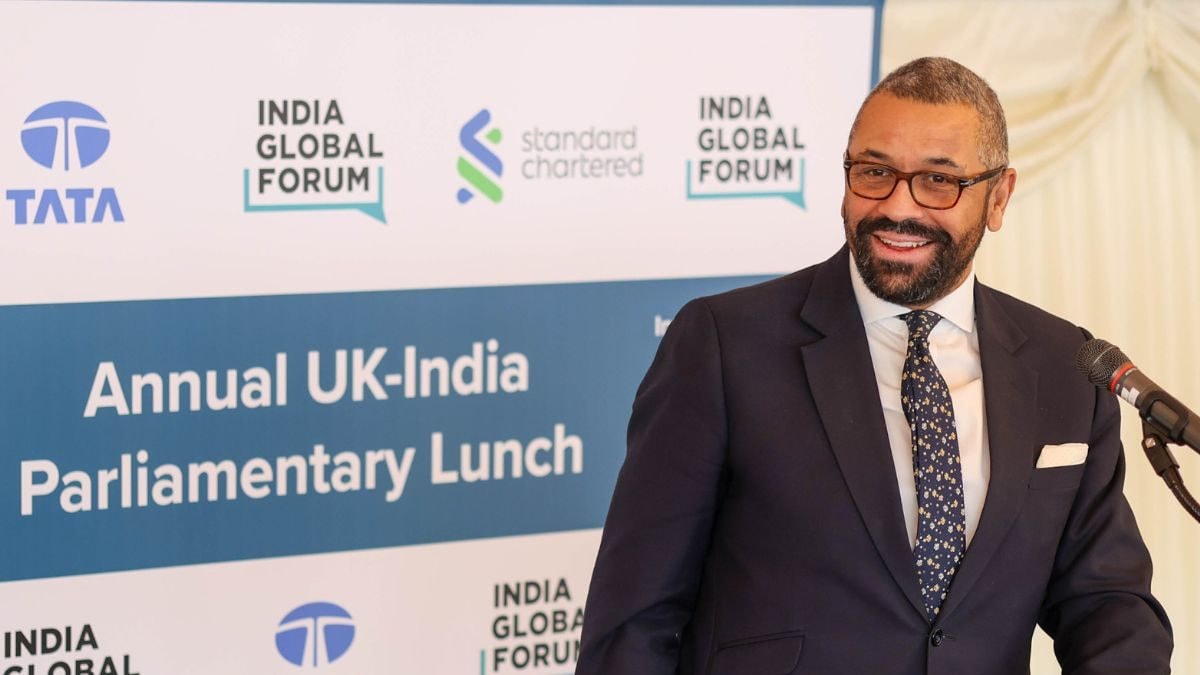British Home Secretary James Cleverley underlined the importance of the UK and India working together for global peace, and called relations between the two countries a “force for good”.
“The intellectual power of India is huge and growing. Whether it’s dealing with potential future pandemics or non-communicable diseases or the opportunities and risks of AI or financial services or sustainable agriculture, I struggle to think of any areas where the UK and There will be no coordination and cooperation between India. A force for good in the world,” Cleverly said at the sixth annual UK-India parliamentary luncheon of the India Global Forum (IGF) at the House of Lords on January 24.
Against the backdrop of major global conflicts, and the first visit by an Indian Defense Minister to the UK in 22 years, the Home Secretary stressed the vitality of the partnership in preventing the spread of conflict.
“It was incredibly important that the Defense Minister of India visited the UK because in a turbulent world and a potentially turbulent region, having strong and long-term partners, as we do with India, closely focuses on security, on the preservation of peace. It is incredibly important to coordinate with . Of course, military relations between India and Britain are very old. I really hope that by demonstrating strength of purpose, demonstrating a commitment to democracy, and demonstrating a willingness to defend our values, the UK and India will prevent the conflict from spreading and spreading to other parts of the world. We can work together to stop it,” he said.
Jointly organized by the High Commission of India in the UK and Lord Jitesh Gadhia, the UK-India Parliamentary Lunch brought together key players from the world of politics, business and finance to celebrate the growing ties between the two democracies.
Referring to British Foreign Secretary David Cameron’s comments on flashing red lights on global conflict dashboards, IGF President and CEO Manoj Ladwa said: “As we have seen, attitudes and responses can vary, even Even between closest partners. These differences are more about nuance and emphasis rather than the fundamental values of rule of law, freedom of belief, diversity and inclusion, free trade and democracy that we all value so deeply. In times like these, democracies must work hard together. Because we all know that democracy works best when it works together.”
Highlighting the progress of the Indian economy in recent years, India’s Deputy High Commissioner Sujit Ghosh said: “India is creating opportunities not only for its own people but also for the rest of the world. Britain is uniquely positioned to benefit from India’s rise. The time has come for our friends in Britain to abandon their old views and see India for what it is.
Lord Gadhia said an important element of UK-India bilateral remains in the hands of political leaders and diplomats, particularly Free Trade Agreement (FTA) negotiations.
“A lot of activity flows from the two-way traffic of people, ideas, commerce and collaboration that is a defining feature of the UK-India axis,” he said.
Follow us on Google news ,Twitter , and Join Whatsapp Group of thelocalreport.in













